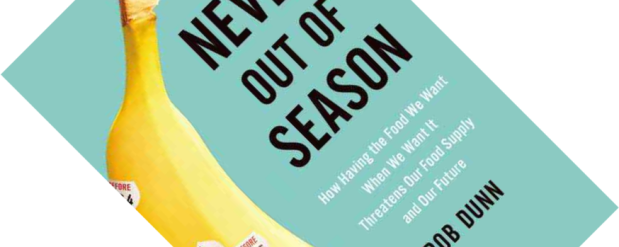Year-round availability of a wide variety of food in our supermarkets has become so commonplace that it is easy to take it for granted. Sure, many of us will have given a passing thought to where our food comes from or questioned whether those organic carrots are really worth the extra pennies. But I am sure I am not alone in having a slightly cynical gut feeling that this amounts to a certain amount of greenwashing: a new sector profiteering from our concern for the environment, promising us we can buy and eat our way to redemption. This isn’t helped by the fact that many proponents of organic agriculture often don’t seem to really know what they are talking about and keep having misconceptions around the issue (Organic agriculture does not use pesticides? Organic produce is healthier?). Plus, most are de-facto opposed to biotechnological sciences and techniques (don’t even get me started on all the opposition to GMOs – make no mistake, I am not saying there is no issue to be had with GMOs, but rarely for the reasons put forward). At least, that, in brief, is my personal opinion on these issues. All this is a long-winded introduction to say: this book made me sit up and pay attention, but for completely different reasons than I have mentioned above.

“Never Out of Season: How Having the Food We Want When We Want It Threatens Our Food Supply and Our Future”, written by Rob Dunn, published by Little, Brown & Company in March 2017 (hardback, 323 pages)
Never Out of Season starts of with a series of chapters that effectively offers cautionary tales, giving an overview of the history of plant diseases and past agricultural disasters: late blight destroying potato harvests across Europe around the 1850s and leading to the Great Famine in Ireland, coffee rust destroying coffee production in Asia and Africa at the end of the 19th century, fusarium wilt eradicating the omnipresent Gros Michel banana in the 1950s, cassava mealybug devouring cassava harvests across West Africa in the 1970s, and witches’ broom causing the fall of the Brazilian cacao production empire in the 1990s. All of these are fascinating and frightening histories, told with fervour.
As Dunn makes clear in his book, we are repeating the same mistakes again and again, at ever grander scales it seems, our agricultural practices trading short-term profits and yield maximisation for long-term food security. What is remarkable is how a small number of people have been pivotal in agricultural developments, both for better or for worse. The chapters detailing the collection expeditions undertaken by the Russian scientist Nikolai Vavilov – he gathered a huge variety of crops and their wild relatives – are absolutely fascinating reading, and really make me want to seek out Gary Nabhan’s book Where Our Food Comes From: Retracing Nikolay Vavilov’s Quest to End Famine (always a good sign). Similarly fascinating is the story of Norman Borlaug and a handful of other crop scientists who almost single-handedly precipitated the Green Revolution that led to large-scale farming with all its trappings such as pesticides, artificial fertilisers, and the rise of giant agro-industrial companies (e.g. Monsanto and DowDuPont) that monopolise seed sales to farmers.
“most heartbreaking of all […] is that a whole generation of plant pathologists, taxonomists, entomologists, and curators of seed banks are retiring or dying, and that with them, their knowledge is lost”
What most urgently stands out in this narrative is how chronically underfunded and undervalued basic scientific research is. For so many pathogens we know so little and we are at the mercy of a few knowledgeable people if a new plant pest emerges. So many crop varieties and their wild relatives are poorly known and are rapidly being lost forever as we lose biodiversity around the globe. All of these have the potential of providing new food sources when our current crop varieties will inevitably succumb to new insect pests or pathogens. What I found most heartbreaking of all to read is Dunn’s sober finding that a whole generation of plant pathologists, taxonomists, entomologists, and curators of seed banks are retiring or dying, and that with them, their knowledge is lost. This research is not sexy, it is not profitable, it requires large amounts of repetitive monk-like work to catalogue our biodiversity, to create and curate seed banks. But it is vital for our survival. As Dunn makes abundantly clear in this book, we subsist on a declining diversity of food (only fifteen species provide us with 90% of our calories. Fifteen!), and we are more numerous than ever before. The next agricultural disaster, the next big famine has the potential to kill hundreds of millions, if not billions, if we do not invest in our food’s future now.
This is what made me sit up and pay attention. This is what made me rethink my own prejudices where organic agriculture is concerned. I cannot think of a higher accolade for a book. Never Out of Season has an urgent message – justifying the rather ominous subtitle – and deserves to be read by a wide audience. It is why I wish every politician and policymaker responsible for science funding and agriculture would read this book. I certainly did not expect a book about agriculture to be such a page-turner.
Disclosure: The publisher provided a review copy of this book. The opinion expressed here is my own, however.



7 comments